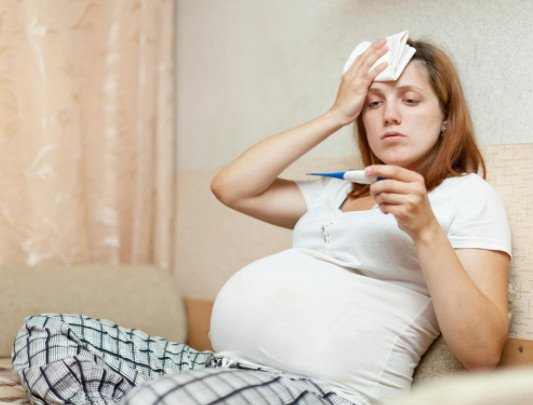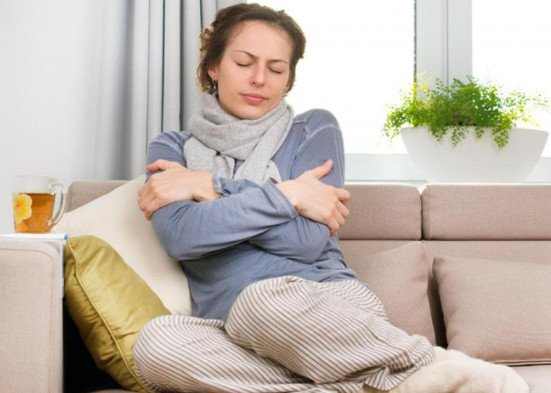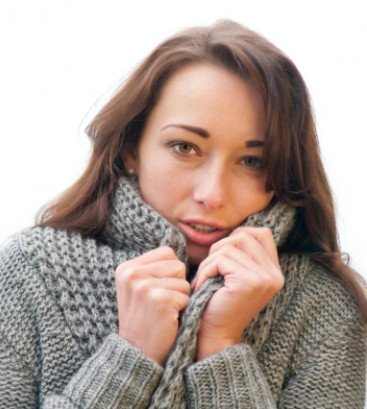Chills or rigor is a feeling of coldness occurring during a high fever. They are often accompanied by fever but may, in some cases, occur without fever. Chills without fever will often result from exposure to cold environments.
This symptom can, however, be a sign of other conditions such as an infection or cancer. This article offers an insight into the causes, symptoms, treatment, and some of the effective home remedies you can use to stop chills with no fever.
Can you have chills without a fever?
By definition, chills are a feeling of coldness occurring during high fever. It is, however, not uncommon for some people to have chills. Chills are commonly caused by inflammatory diseases such as flu. In both children and adults, malaria is said to be the common cause of chills.
In most cases, chills can be a sign of an infection. While chills will often be accompanied by fever, in some cases, it may occur without fever. Chills are caused by your body’s attempts to burn energy and increase your body temperature. This is common when your body is trying to fight off an infection. This is how chills cause fever.
Chills will arrive first before your temperature goes up. In other cases, one may have the chills without a fever. So yes, it is possible to have chills without a fever. If the chills clear within a day, then it is possible t was not a sign of an infection. In such cases, it could be a sign of hormonal deficiency, such as hypothyroidism.
Recurring chills without fever
Chills are common and often indicate the presence of an underlying infection. As mentioned, chills help your body to burn energy, thus raising your body temperature. Recurring chills without fever is something that should be checked as soon as possible.
Chills happen when the body tries to raise the temperature with rapid contraction and relaxation of the muscles. Chills ill often occur before the fever. In most cases, chills are considered an early symptom of fever. Recurring chills with no fever is likely to be a sign of:
- Anemia or low hemoglobin level in the blood
- Malnutrition and gastrointestinal complications
- Recurring chills in women might be a sign of urinary bladder infection
- Medication side effect
- Low glucose in the body
- Hypothyroidism which is often characterized by chills and shivers
What causes chills without a fever?
Chills are the body’s way of increasing temperature. Whereas in most cases, chills will often be accompanied by fever (abnormally high temperatures), it is not uncommon for some people to experiences chills with no fever.
Some of the common causes of chills with no fever include the following:
1. Urinary tract infection
UTIs such as Cystitis occurs when bacteria get into your urethra, causing an infection. Such an infection, according to Dr. Jennifer Robinson of WebMD, can causes:
- A burning sensation when urinating
- Fouls smelling urine
- Pelvic pain
- Increased urge to urinate
A bladder infection is one of the common causes of chills. Such an infection should be treated as soon as possible to avoid any complications. With a bladder infection or a urinary tract infection, you need to drink plenty of water to flush the toxins out.
2. Anemia
Anemia is a common blood condition, especially in children and women. It is a condition characterized by a deficiency of red blood cells or hemoglobin in the blood.
A common symptom of anemia is cold feet and hands. With anemia, when small blood vessels in your extremities receive too little iron, they are more likely to drop in temperature. A continued drop in temperature may lead to chills without a fever.
Other symptoms of anemia will include:
- Clinical depression
- Fatigue and weakness
- Skin color changes
- Irregular heartbeat
Like other medical conditions, anemia can be prevented by cutting down on alcohol consumption, eating iron-rich foods, or taking iron supplements.
3. Sepsis or blood poisoning
Sepsis or blood poisoning, medically known as septicemia, is a life-threatening blood infection known to cause organ failure, clotting, and sudden drop in blood pressure. Chills without fever or with fever are common symptoms of this condition.
4. Hypothyroidism
Hypothyroidism or underactive thyroid occurs when your thyroid glands do not produce enough thyroid hormones. Thyroid hormones regulate how your body uses energy.
An underactive thyroid causes chills because your body uses less energy, thus generates less heat. When suffering from this condition, you will find it hard to handle cold temperatures. Remembers chills help your body generate temperature.
Common symptoms of an underactive thyroid will include:
- Anxiety and depression for no apparent reason
- Fatigue and weakness
- Pain in joints
- Sudden weight gain
- Abnormal menstrual periods in women
5. Hypoglycemia
Hypoglycemia is the other possible cause of chills. It is a clinical syndrome that results from low blood sugar, especially in people with diabetes. Common symptoms of this condition will include the following:
- Blurry or double vision
- Anxiousness
- Heart palpitations and erratic heartbeat
- Sudden shaking and tremors
- Intense hunger
If you are diabetic, then the medication and insulin may help control the level of blood sugar level. If however you develop hypoglycemia and you are not diabetic, then you can prevent this condition by doing the following:
- Increase your consumption of carbohydrates
- Cut down on alcohol consumption and tobacco use
- You can schedule regular appointments with your health care provider to ensure you monitor your blood glucose
6. Medication side effect
The chills without fever can also be a medication side effect. A common medication that might cause these side effects will include Voltaren, Ibuprofen, and Effexor, among other drugs. Speak with your doctor if you suspect the drugs you are on, are the cause of the chills
7. Anxiety and panic attacks
Chills could also mean you are experiencing anxiety or panic attack. In such cases, other symptoms might include:
- Mild to severe chest pains
- Trembling
- Pounding heart
- Dizziness
- Lightheadedness
Chills without fever during pregnancy

Chills with no fever can also occur during pregnancy. In such cases, it could be a sign of any of the following conditions:
8. Malnutrition
Malnutrition during pregnancy is a leading cause of disease and other infections. During pregnancy, a lack of vital nutrients makes you vulnerable to viral and bacterial infection. Your body may also lack the energy to perform basic functions.
Malnutrition can be as a result of:
- Digestion and absorption issues
- Secondary health issues
- Insufficient foods
Malnourished individuals often lack proper heat. This can be attributed to the lack of stored body fat. It is thus possible to feel cold even with no fever. Malnutrition can thus cause chills, shivers, and lightly tingles in extreme cases.
One can prevent malnutrition by maintaining a proper healthy diet, limiting their intake of junk and processed food, and in extreme cases, vitamin and nutritional supplements may be used.
9. Hypothermia
Hypothermia is also a possible cause of chills without fever, not only during pregnancy but also when not. It happens when your body fails to adjust to the loss of heat in extreme environments. In such cases, you may start to lose sensation in the extremities. This can be followed by the weakening of muscles and diminished consciousness.
10. Insomnia
Lack of enough sleep or insomnia during pregnancy leaves your body prone to disease and infections. Normally, your body temperature drops when asleep, so not having enough sleep may cause this to happen when you are awake.
The chills, shiver, and uncontrolled shaking you experience due to insomnia may be your body’s way to keep you warm.
During pregnancy, you can prevent insomnia by:
- Not taking stimulants such as coffee when going to bed
- You can do some exercises such as yoga and meditation before you go to bed
- You can avoid long day naps to ensure you sleep well during the night
- Avoid detraction and stressing factor before bedtime
11. Cold environment
Chills during pregnancy are obvious and may, at times, occur for no apparent reason. When your body is exposed to the cold, it tries to raise your internal temperature by shaking, shivering, and chills.
Long exposure to cold environments can be bad for your health, especially when pregnant.
Symptoms of chills without fever
Chills are normal and will often manifest from two situations. The first one is the normal physiological reaction to cold, and the other is the one accompanying fever. With chills, the muscles of your body continue to contract and relax rapidly to raise your body temperatures.
There are some symptoms that will show you have chills but no fever. Common one includes the following:
- Sweating, as your body continues to generate more heat, some body parts like your armpit will start secreting more sweats as a result. In a cold environment, your skin may feel sticky and clammy.
- Shivering or uncontrolled shaking this is the result of the contraction and relaxation of your muscles to generate heat
- Chattering teeth, this is also caused by muscles contraction
- Some people may develop goosebumps
Night sweats and chills without fever
Night sweat or hyperhidrosis accompanying the chills without a fever is often associated with a variety of serious illnesses. It is important to note that night sweats are different from primary hyperhidrosis. Unlike with the night sweat, primary hyperhidrosis is characterized by excessive sweating from one area of the body.
For night sweats, physicians are unable to discern the cause it the symptoms appear without an associated illness. So what causes night sweats and chills but no fever?
The most likely causes of these symptoms will include the following conditions:
- Hypoglycemia is a condition marked with a deficiency in blood glucose. This condition can be shown by symptoms such as anxiety, shaking or trembling, sweating, dizziness, and confusion among other temperatures.
- Hyperthyroidism is a condition caused by the secretion of too much thyroid hormones that control metabolism. Increased metabolism may result in increased body heat, which causes night sweats, tremors, insomnia, anxiety, and heart palpitation, among other symptoms.
- Viral and bacterial infections can cause chills, which are the body’s mechanism to increase temperature. night sweats in such cases can serve to regulate this temperature
Uncontrollable shaking and chills
Chills or uncontrolled shaking is a common symptom of hypothyroidism. Hypothyroidism is a condition marked by an abnormally low activity of the thyroid gland. This condition is also called underactive thyroid disease.
With an underactive thyroid, the thyroid gland located in the front of your neck fails to make enough thyroid hormone. These hormones travel through your bloodstream and affect nearly every part of the body. They control how your body cells use energy, a process known as metabolism. Your body affects your body temperature, heartbeat, and how well your body burns calories.
Other common causes of uncontrollable shaking and chills will include the following:
- Long exposure to cold temperatures
- Viral and bacterial infections
- A drop in blood sugar level
- Being under extreme anxiety or depression
In most cases, the uncontrollable shaking may serve to increase the core temperature. When the shivering is caused by cold, for instance, warming yourself up can help gradually stop the shaking. On the other hand, is the shaking and chills are caused by an underlying medical condition, then treating the said condition is the best way to stop the shaking.
Chills without fever and stomach pain
When chills without fever and stomach pain occur, it is likely to be a symptom of inflammation. The blood test (morphology, CRP) and urinalysis are usually sufficient for initial diagnosis.
The discovery of the source might become more challenging. However, based on the results of these standard analyzes and full medical history, the doctor should be able to establish a further diagnostic plan.
How to treat chills without fever

Treating chills without fever often vary depending on the underlying cause. According to the health line, treatment is usually based on whether your chills are accompanied by fever and how severe the fever is. If fever is the only symptom shown, then you could treat the symptoms at home. However, if the chills persist, you will need to see your healthcare provider.
Your health care provider may need to run some diagnosis and possibly physical examination to identify what the underlying cause of chills might be. When the cause is a bacterial infection or a viral infection, then antibiotics and antiviral medication may be used to treat the chills.
Other treatment options for chills will include the following:
- Food and nutritional supplements can be used in cases of malnutrition
- Synthetic thyroid hormone when the cause of the chills without a fever is hypothyroidism
- Sleeping pills may be used in cases where the chills cause lack of sleep
- If the chills are a side effect of the medications you are using, then your doctor may discontinue the dose and prescribe a new one
- Anti-venom drugs may be used when the cause of the chills is an insect bite
- Iron supplements can be used to correct iron deficiency causing the chills
- In emergency cases such as food poisoning, intravenous administration of fluids will help prevent dehydration
Natural remedies
With chills without fever, the best way to getting rid of the symptom is to treat the underlying causes. Treating the condition can only be done after proper medical diagnosis and examination. There are, however, some home remedies that can supplement the treatment to give the best results.
The most effective home remedies for chills include the following:
- Drinking plenty of water to keep your body hydrated may ease the chills, it also ensures proper digestion that can help your body warm
- Ensure you have enough sleep to prevent sudden shivering. Sleep relaxes your body thus easing the chills
- Do some exercise to stop the uncontrolled shaking, shivering, and chills. You can run, jog, lift weight to keep fit and stay warm
- In cold weather, you can take a warm bath to keep warm and ease the chills
- Chills without fever can also stop by eating regularly or in intervals. Food metabolism is known to increase body temperature.
- Avoid heavy blankets and clothing that could raise your body temperature
References:
- what causes chills: http://www.healthline.com/symptom/chills
- 7 conditions that might cause chills with no fever: https://healdove.com/disease-illness/Chills-without-Fever-are-Caused-by-Different-Conditions
- Chills without fever, causes, and treatment: http://mddk.com/chills-without-fever.html
- What causes chills and night sweats: http://www.livestrong.com/article/200419-what-are-the-causes-of-chills-and-night-sweats/


